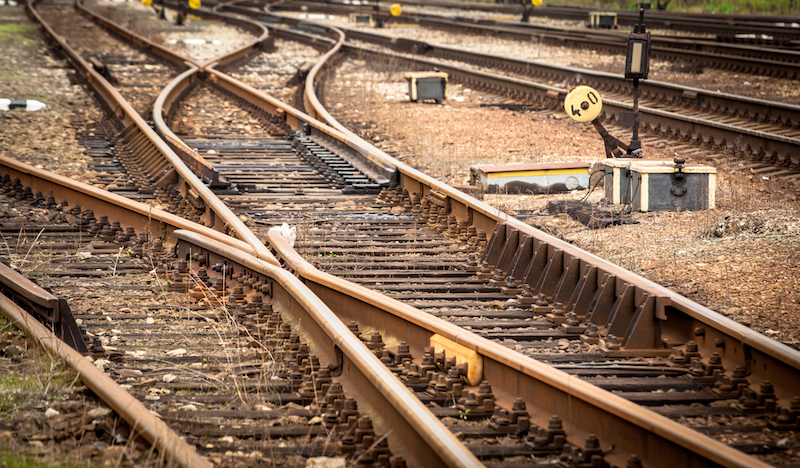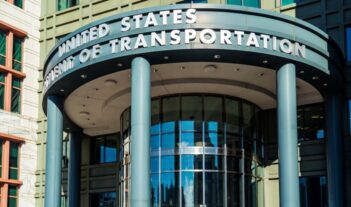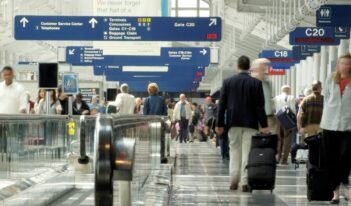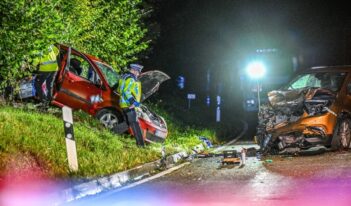
Transportation safety agency and senators push for regulations combatting sleep apnea in rail employees.
In recent years, New York commuters have encountered significant railroad disasters. A passenger train crash in 2016 resulted in over 100 injuries and one fatality. Only thirteen weeks later, another train derailed because it did not brake correctly, and hundreds more passengers sustained injuries.
After investigating the causes of the two accidents, the National Transportation Safety Board (NTSB) earlier this year concluded that both trains’ engineers suffered from fatigue due to undiagnosed severe obstructive sleep apnea. The NTSB also suggested that a mechanism to halt the train would have been helpful in both cases.
Obstructive sleep apnea causes people to stop breathing periodically while they are sleeping, resulting in them waking up momentarily to restore their breath. The cycle can happen dozens of times per night, which means that those with the condition do not get a full night’s rest. Due to this condition, the fatigue of the engineer in the first of the recent train accidents caused the accident, and the engineer in the second accident actually fell asleep while operating the train. One of the railroad companies had a sleep apnea screening policy in place at the time of the accident but did not adhere to it; the other railroad implemented one after the accident.
In the aftermath of the collisions, the NTSB recommended that the Federal Railroad Administration (FRA)—part of the U.S. Department of Transportation—require mandatory sleep apnea screenings for train operators. Although the Department initiated a rulemaking proceeding in 2016 to institute such a requirement, the Trump Administration withdrew the rulemaking last year. NTSB Chairman Robert L. Sumwalt reportedly expressed that he was “mystified” by the Department’s withdrawal.
A group of senators agreed and wanted to see the FRA take action. Earlier this year, Senators Chuck Schumer (D-N.Y.), Richard Blumenthal (D-Conn.), Bob Menendez (D-N.J.), and Cory Booker (D-N.J.) issued statements calling for the agency to require sleep apnea screening. Senator Schumer reportedly said that the withdrawal “makes no sense” and poses a serious threat to the safety of the traveling public. Senators Menendez and Booker, along with two members of the House, penned a letter to President Donald Trump, asking him to take action “to curb further tragedies caused by sleep apnea.”
In their statements, the senators criticized the Department for backing away from plans to regulate obstructive sleep apnea in railroad employees.
In its 2016 notice of proposed rulemaking, the FRA acknowledged that obstructive sleep apnea contributed to several recent motor vehicle and train accidents. The FRA considered mandating sleep apnea testing for all train employees with “safety sensitive positions”—meaning those operators with an obligation to keep the work environment safe for other transportation workers and travelers. At that time, the FRA categorized obstructive sleep apnea as “a critical safety issue” in the context of transportation.
But in the August 2017 withdrawal of its proposed rulemaking, the FRA reasoned that safety programs and regulations already in place sufficiently protect travelers against the dangers of obstructive sleep apnea. Its 2004 guidance on sleep disorders, according to the FRA, already offers ways to lower the risk of accidents from fatigue, such as informing employees about the effects of sleep disorders on safety, incorporating sleep disorder screenings into employees’ medical examinations, and establishing rules to prevent employees with sleep disorders from working in safety-sensitive jobs.
In announcing its withdrawal of its proposed rule, the FRA said that it trusts that private railroad carriers will factor obstructive sleep apnea into their fatigue management plans, which are already required under the Rail Safety Improvement Act of 2008. In these plans, carriers must detail how they intend to curb fatigue in employees whose jobs impact safety and take into account ways to diagnose and treat ailments like sleep disorders.
The NTSB and a group of senators took issue with the agency’s withdrawal, despite the arguments made by the FRA to justify it.
The NTSB explained that agency guidance on proper rest did not sufficiently combat the safety risks posed by sleep apnea. It noted that the withdrawal of the proposed rule signified the FRA’s “failure” to tackle the safety problems created by sleep disorders. The NTSB also asserted that the FRA did not follow through with a 2012 recommendation requesting obligatory sleep disorder screenings for railroads—the lack of which led to the two accidents in New York.
The senators had also taken multiple actions to support sleep apnea regulation. In August 2017, Senators Schumer, Menendez, and Booker, along with Senator Kirsten Gillibrand (D-N.Y.), wrote to U.S. Secretary of Transportation Elaine Chao to express their disapproval of her department’s withdrawal of the proposed sleep apnea testing rule. The following month, the same four senators introduced a bill to require the Transportation Department to issue a rule mandating sleep disorder screening and treatment. Senators Schumer, Blumenthal, Menendez, Booker, and Gillibrand, along with Senator Robert P. Casey, Jr. (D-Pa.), also wrote to the NTSB, asking it to scrutinize sleep apnea more rigorously.
Sumwalt noted that the NTSB’s recommendations, if implemented, would “have the potential to eliminate end-of-track collisions” and “translate to protection for passengers on trains, and for people standing on terminal platforms.”



